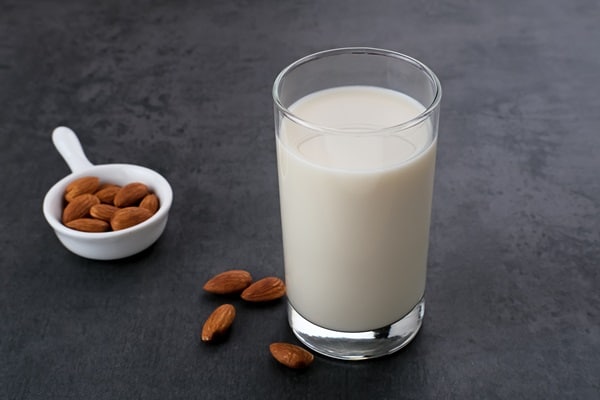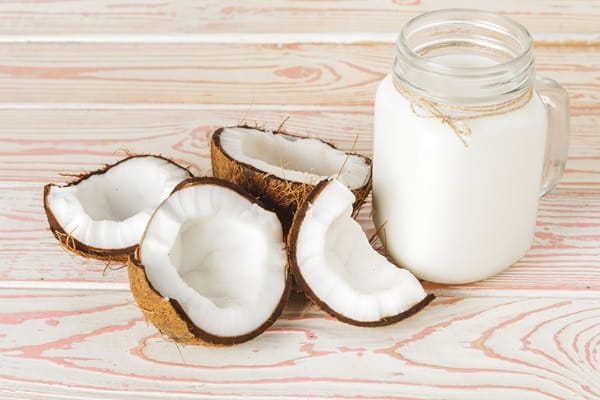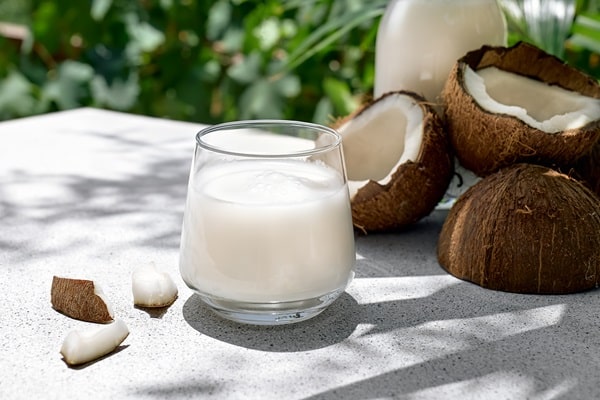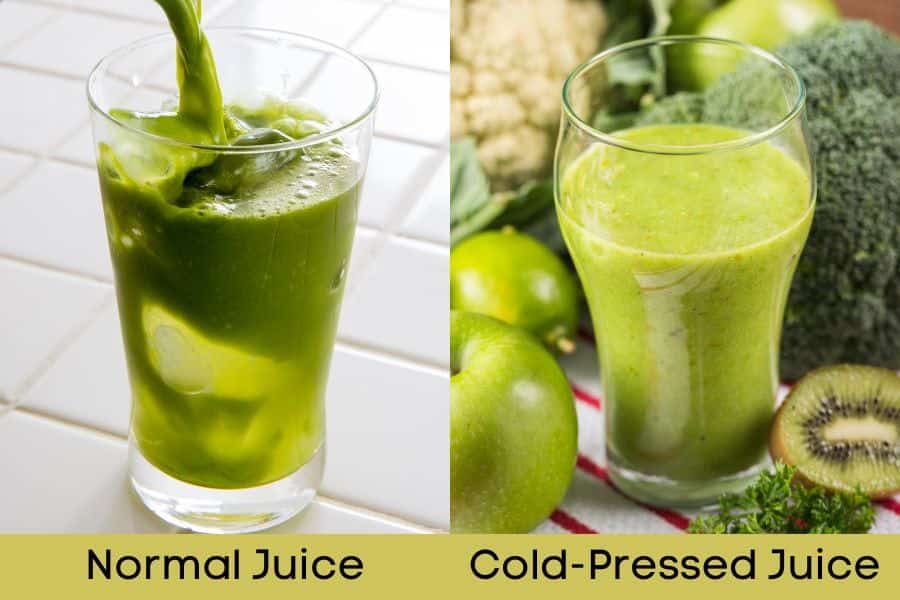In recent years, the landscape of milk alternatives has dramatically transformed, with a notable rise in the popularity of plant-based options. Among these alternatives, coconut milk and almond milk have emerged as two of the most favored choices for health-conscious consumers and those with dietary restrictions. This article aims to provide a thorough comparison between these two plant-based milks, shedding light on their nutritional values, health implications, and culinary versatility. By exploring the unique qualities and benefits of coconut milk and almond milk, this piece will offer valuable insights for anyone looking to understand the nuances of these popular dairy alternatives.
Contents
The Rise Of Plant-Based Milks

The shift towards plant-based milks is not just a trend but a reflection of changing dietary preferences and growing health consciousness. Consumers are increasingly opting for dairy alternatives due to lactose intolerance, environmental concerns, and a desire for lower-calorie options. This shift is supported by a growing body of research highlighting the health benefits of plant-based diets, including reduced risk of heart disease and improved digestion.
Almond milk and coconut milk have emerged as frontrunners in this market. Their popularity is fueled not only by their nutritional benefits but also by their versatility in various culinary applications. From coffee shops offering almond milk lattes to chefs using coconut milk in exotic dishes, these milks have transcended the boundaries of traditional dairy products, finding a place in diverse dietary lifestyles.
The Basics Of Coconut Milk

Coconut milk, derived from the flesh of mature coconuts, is a creamy, tropical delight known for its rich texture and sweet, nutty flavor. It’s a staple in many Asian cuisines, used in everything from curries to desserts. Nutritionally, coconut milk is high in calories and saturated fats, but these fats are mostly medium-chain triglycerides (MCTs), which are metabolized differently than other fats and may offer health benefits like improved metabolism.
However, coconut milk’s high saturated fat content has raised some nutritional concerns, particularly regarding heart health. Despite this, it remains a favorite for those following keto and paleo diets due to its high fat and low carbohydrate content. Additionally, coconut milk is naturally lactose-free, making it a suitable option for those with lactose intolerance or dairy allergies.
Exploring Almond Milk

Almond milk, made from ground almonds and water, presents a stark contrast to coconut milk. It’s light, with a slightly sweet and nutty flavor, and has gained immense popularity as a low-calorie, low-fat dairy alternative. Almond milk is a great source of vitamin E, a powerful antioxidant, and is often fortified with calcium and vitamin D, making it a nutritious choice for bone health.
Unlike coconut milk, almond milk is low in calories and fats, making it a preferred choice for weight management. Its low carbohydrate content also makes it suitable for diabetic diets. However, it’s important to note that almond milk is typically lower in protein compared to dairy milk, which might be a consideration for those using it as a primary milk source. Despite this, its versatility in both sweet and savory dishes, as well as beverages, makes it a versatile addition to any kitchen.
Nutritional Breakdown

When comparing the vitamin and mineral content of coconut milk and almond milk, there are significant differences to consider. Coconut milk is a good source of certain minerals like manganese and copper, which are essential for bone health and maintaining metabolic functions. It also contains moderate amounts of iron, magnesium, and phosphorus. However, it’s important to note that coconut milk is not naturally high in calcium or vitamin D, nutrients often associated with bone health, which are typically found in dairy milk.
Almond milk, on the other hand, is naturally rich in vitamin E, a potent antioxidant that helps protect the body from oxidative stress. While it’s lower in protein than coconut milk, almond milk is often fortified with calcium and vitamin D, making it a competitive alternative to dairy milk in terms of these nutrients. Additionally, almond milk is a good source of magnesium, which plays a crucial role in many bodily functions, including muscle and nerve function, blood sugar control, and blood pressure regulation.
Calories And Fat Content

The calorie and fat content of coconut milk and almond milk are vastly different, which is a crucial factor for those monitoring their weight or managing their calorie intake. Coconut milk is high in calories and saturated fats, which can be a concern for individuals on a calorie-restricted diet. However, the medium-chain triglycerides (MCTs) in coconut milk are metabolized differently than other fats and may aid in weight management when consumed in moderation.
Almond milk stands out as a low-calorie, low-fat alternative. It is particularly appealing to those looking to reduce their calorie intake without sacrificing taste or nutritional value. The low fat content also makes almond milk a heart-healthy choice, as it helps in maintaining lower cholesterol levels. Its lightness and lower calorie count make it a popular choice in weight loss diets, smoothies, and as a dairy substitute in coffee and tea.
Environmental Impact And Sustainability

The production of coconut milk and almond milk has distinct environmental footprints that are important to consider. Coconut milk production is often criticized for its potential impact on tropical ecosystems, including deforestation and biodiversity loss. However, coconut trees are also known for their ability to thrive in diverse soil conditions and climates, making them a sustainable crop in many regions.
Almond milk production, particularly in California, where a significant portion of the world’s almonds are grown, has raised concerns over water usage. Almond trees require a substantial amount of water, which has environmental implications in water-scarce regions. However, advancements in sustainable farming practices and water management are helping to mitigate these impacts. Both coconut and almond milk producers are increasingly focusing on sustainability and environmentally friendly practices in response to consumer demand.
Allergies And Dietary Restrictions

Both coconut milk and almond milk are excellent alternatives for those with specific dietary requirements, but they also come with their own set of considerations regarding allergies and dietary restrictions. Coconut milk is generally a safe choice for individuals with nut allergies, as coconuts are technically a fruit and not a nut. This makes it a viable option for those who need to avoid tree nuts or peanuts. Additionally, being naturally lactose-free, coconut milk is an excellent choice for those with lactose intolerance or for individuals following vegan diets.
In contrast, almond milk is derived from tree nuts, making it unsuitable for anyone with a tree nut allergy. Despite this limitation, it remains a popular dairy-free alternative for vegans and those who are lactose intolerant. It’s essential for consumers with specific allergies or dietary restrictions to carefully check product labels, as some brands of almond milk might include additives or flavorings that could pose allergenic risks or conflict with dietary preferences.
Taste And Culinary Uses

The taste profiles of coconut milk and almond milk are distinctively different, influencing their culinary uses. Coconut milk has a rich, creamy texture and a sweet, nutty flavor that is a staple in many Asian and tropical dishes. It’s widely used in curries, soups, desserts, and even in cocktails. Its creamy consistency makes it an excellent dairy substitute in recipes that require a rich, full-bodied texture.
Almond milk, with its lighter and slightly sweet, nutty flavor, is versatile in both sweet and savory dishes. It’s a popular choice for cereals, smoothies, baking, and as a dairy substitute in coffee and tea. Its mild flavor doesn’t overpower dishes, making it a suitable ingredient in a variety of recipes. From a culinary standpoint, both coconut milk and almond milk offer unique flavors and textures that can enhance a wide range of dishes.
Discover Your Ideal Milk Alternative
Both coconut milk and almond milk offer unique nutritional benefits and cater to various dietary needs and preferences. Whether you’re looking for a low-calorie option like almond milk or a rich, flavorful choice like coconut milk, understanding their distinct characteristics can guide you in making a healthier choice. Remember, the best option depends on your individual health goals, dietary restrictions, and taste preferences. So, explore these plant-based alternatives and incorporate them into your diet to enrich your culinary experiences and support your wellness journey.


